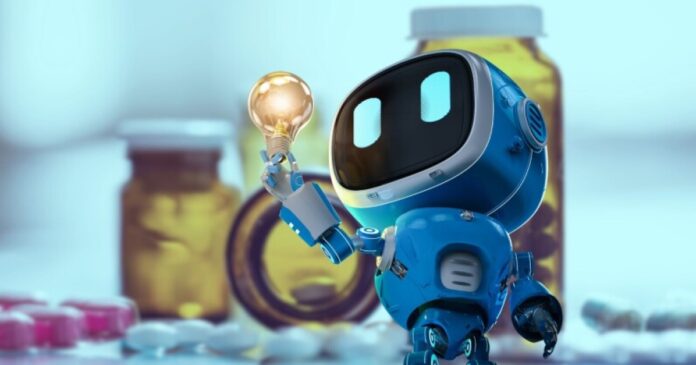Google DeepMind’s spin-off Isomorphic Labs is expecting testing on its AI-designed drugs to start this year as tech startups race each other to turn algorithmic magic in to actual treatments. The Nobel Prize-winning CEO of the company, Demis Hassabis, said that the company hopes to have AI-designed drugs on the market by the end the year. That’s the plan.
AI-powered drug discoveries have a huge potential. Machine learning algorithms can analyze mountains of data and spot patterns to predict which molecules will make the next miracle medicine. This could lead faster drug development and cheaper costs. It could also lead to new cures. According to estimatesthere are currently over 460 AI startup companies working on drug discovery. Of these, more than a quarter are from Europe. More than $60bn in funding has been invested globally, and this trend is not slowing down.
But discovering the drugs is only one step in the entire process. It’s not until big pharma decides that they are worth manufacturing, marketing and distributing, will it make a difference to people like you and me. It’s this that makes recent partnerships between pharma giants and AI startups so exciting.
Isomorphic Labs signed a $45mn deal last year with Eli Lilly to collaborate on AI research into small molecule therapies. Isomorphic Labs is also eligible for up to $1.7bn of “performance-based milestones” under the agreement. The company also signed an identical collaborative deal with Swiss biotech Novartis. Hassabis said in a interview with Bloomberg Television shortly after the announcements that “we’re already working[on]real drug programs.” “I expect the first AI designed drugs to be in the clinic in the next two years.”
Exscientia spun out of Dundee University, in 2012, and was one of the first companies to apply AI to drug development. In 2024, Exscientia advanced its first AI designed drug candidate into human trials. This milestone was achieved in only 12 months, a process which typically takes five years. In November, US rival Recursion purchased Oxford-based companyfor $688mn.
Here are two examples of a market for AI-driven drug discoveries that is booming and consolidating. There are many early-stage companies that are working on niche applications. CardiaTec in Cambridge, UK, uses AI to find new drugs to treat heart conditionsand Multiomic Health is based in London, working on formulas for metabolic diseases.
AI isn’t the answer to drug discovery, despite its potential. While it can speed up the process of finding the right compounds to make new drugs — such as wet lab tests using physical samples, clinical trial, and FDA approval — the most time-consuming processes — such as wet laboratory tests with physical specimens, clinical trials, or FDA approval — will not be accelerated. AI’s true power is in the first phase, when it can pinpoint targets that would have otherwise been missed, saving time for researchers and potentially unlocking new treatments.


